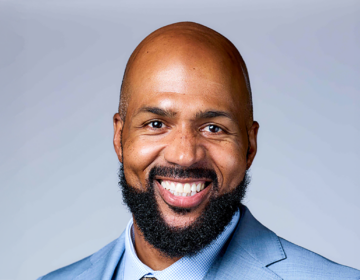As NJ students refuse to take PARCC exams, school leaders argue against ‘opting out’
ListenNew Jersey education officials are pushing back against a growing wave of opposition to its new standardized tests, telling lawmakers that the “opt out” movement could cost the state millions and deprive schools of essential data.
“Parents are being misled that there are no consequences to schools for their non-participation,” said Bari Erlichson, the chief performance officer for the New Jersey Department of Education at a Senate Education Committee hearing in Trenton Thursday.
Among the issues she cited is a provision of the No Child Left Behind law which allows the government to withhold federal aid from schools that don’t get 95 percent of their students to take the assessment tests. State Education Commissioner David Hespe told the committee that at least $300 million in Title I funds, and as much as a billion dollars of federal aid, could be at stake.
But critics of the high-stakes tests say that’s just a scare tactic, and they want to make opting out even easier.
“The federal government, the U.S. Department of Education, has never, ever taken money away from a school for falling under 95 percent participation,” said Julia Rubin of the volunteer parent group, Save Our Schools.
Rubin said that multiple schools fall short of that mark every year, not just in New Jersey but nationwide. Enforcing the penalty in New Jersey or elsewhere would be “politically impossible,” she said.
Exactly how many New Jersey students are opting out of the tests — known as PARCC tests, short for the Partnership for Assessment of Readiness for College and Careers — is not clear. Officials say they’ll know for sure when this spring’s testing is complete.
But reports suggest that opting out is widespread, taking place in districts of every economic and political description. In Cherry Hill, more than 2,000 students refused to take the tests. Similar stories have been reported in Newark, Delran, and Princeton.
The New Jersey opt-out movement mirrors similar movements in Pennsylvania, New York, and other states. In Pennsylvania, opt-outs have doubled in the last year, driven in part by concerns about English-language learners who struggle to understand the tests. As a rule, opt-out advocates say they’re not opposed to testing per se, but rather to using test results as a way to evaluate schools and teachers
“This is a movement to restore real learning,” said Tim Slekar of United Opt Out in Wisconsin in a recent interview in Education World. “Spending on standards and tests has taken away from funding music and arts programs, for example, and could be better allocated elsewhere.”
Hespe said he believes overall participation is strong in New Jersey, but that the opt-out numbers could be high enough to compromise school data, particularly in the higher grades. “We are anecdotally following what’s going on,” he said. “In some high schools, participation is definitely a problem.”
Hespe said the “vocal” opposition wasn’t surprising. “Who likes tests?” he said.
But he added that much of that response was spurred by “misinformation” about the tests spread by opponents. Contrary to some assertions, the PARCC tests are not significantly longer or more difficult for students than previous tests, he told lawmakers. And the data will provide an unprecedented level of diagnostic information to teachers and parents.
“This is much more than a test. We’re developing a system of learning,” he said.
Rubin rejected much of that analysis, saying that while the difference may not be enormous on paper, in practice the PARCC the tests take hours longer than previous tests, and that the computer-based interfaces are often confusing, even for adults.
Rubin’s group is backing legislation that would make it even easier for students to opt out. Four separate New Jersey bills would address various parts of the testing regimen, including one that would prohibit the state from using PARCC data for several years until it has been proved reliable and another that would bar schools from using any means to coerce students into taking the tests.
However, Rubin said, none of the four bills is scheduled for a hearing.
Meanwhile, Hespe asked lawmakers to be patient despite the many calls and complaints they’re getting from parents.
“It’s always a difficult process saying that assessment can improve learning,” Hespe said. “Later this year, we can engage dispassionately and deliberately … and then we can chart a future course.”
WHYY is your source for fact-based, in-depth journalism and information. As a nonprofit organization, we rely on financial support from readers like you. Please give today.




